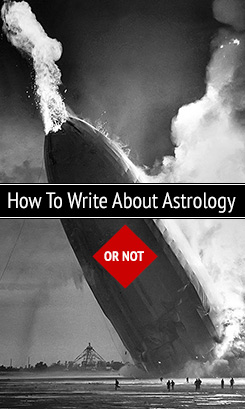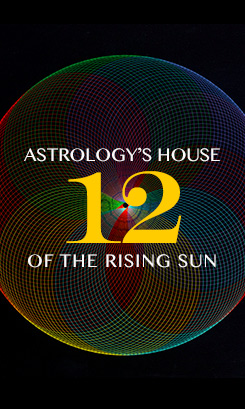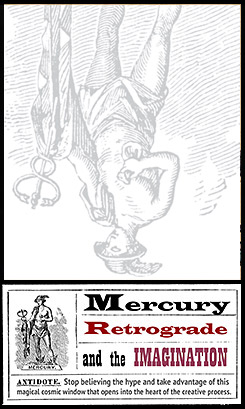My New eBook Skywriter: Notes on Modern Astrology Is Ready to Download Today!

![]()
![]()
![]()
When I launched AstroInquiry fourteen years ago I took an aim that I would create content that had substance, offered insights and had meat on the bone.
If you’re a reader who has grown bored with the vague, go-nowhere nature of most astrological scribing — New Age jargon cloaked in astrological cliches — then my new book — a collection of some of the most popular essays from AstroInquiry, will interest you.
• Would you like a better understanding of Mercury retrograde — both the astronomical phenomenon and the astrological interpretations of this annual event? Then you’ll enjoy the chapter The Truth About Mercury Retrograde. Find new ways to harness the rich imaginal realm within your unconscious, images that are heightened during the Mercury retrograde cycle. Who cares about lost car keys when the heart of your creative nature beckons?
• How about love? Without question, relationships — especially romance-based — offer great potential for psychological maturity. To understand love is to foster compassion and generosity as well as the excitement of deeper intimacy and sexual communion. You’ll find much to explore in the chapter Secrets of the Heart: Love is an Action Not A Feeling. The chapter opens with one of Rumi’s most beguiling poems and then moves forward from that literary close reading into the mysteries of human relating. A must for the intrepid Hero and Heroine of the Heart. Read more
Annie Dillard: Unseen Beauty and Grace
“About five years ago I saw a mockingbird make a straight vertical descent from the roof gutter of a four-story building. It was an act as careless and spontaneous as the curl of a stem or the kindling of a star.
The mockingbird took a single step into the air and dropped. His wings were still folded against his sides as though he were singing from a limb and not falling, accelerating thirty-two feet per second, through empty air.
Just a breath before he would have been dashed to the ground, he unfurled his wings with exact, deliberate care, revealing the broad bars of white, spread his elegant, white-banded tail, and so floated onto the grass.
I had just rounded a corner when his insouciant step caught my eye; there was no one else in sight. The fact of his free fall was like the old philosophical conundrum about the tree that falls in the forest. The answer must be, I think, that beauty and grace are performed whether or not we will or sense them. The least we can do is try to be there.”
Annie Dillard | Pilgrim at Tinker Creek
Gorgeous bird photography by TinyFishy
Allen Ginsberg and the Mind

In the declaration below, Allen Ginsberg explains why it is vital to write.
I’ll let you read it for yourself, but add simply this. Similar to the how the ego is targeted as a pariah within the psyche’s field, the mind also is devalued and maligned as a function that sidetracks us — prevents focused attention. Especially in the Buddhist traditions, there’s too much oppression against the mind.
Ginsberg reminds us that the mind is a mirror. And when we remember this I think we’re aligned in the right way with our apparatus.
I discovered this entry today on a site I’ve been visiting, reading and enjoying very much lately, Luke Storms‘ Intense City.
Luke gathers together a diverse collection of material — and mixes it alongside his own writing. He keeps things fresh that way, and, similar to what I’ve tried to do with Astroinquiry, finds inspiration by placing his own thoughts alongside the material that is most influencing and informing him in the moment. I think you’ll discover that Luke’s site is a place you’ll want to visit again and again. Like repeating a favorite long walk on a spring (or winter) day — along with the familiar road, there’s always something new to discover.
“Proclamation of the actual mind, manifesting your mind, writing the mind, which goes back to Kerouac but also goes back to Milarepa, goes back to his original instructions: Don’t you trust your own mind? Why do you need a piece of paper?
So writing could be seen as “writing your mindâ€, observing your own mind, or observe what’s vivid coming to mind. For the purpose of relieving your own paranoia, and others’, revealing yourself and communicating to others. It is a blessing for other people if you can communicate and relieve their sense of isolation, confusion, bewilderment, and suffering by offering your own mind as a sample of what’s palpable, visible, and whatever little you’ve learned.
In other words, if you can show your mind it reminds people that they have got a mind. If you can catch yourself thinking, it reminds people that they can catch themselves thinking. If you have a vivid moment that’s more open and compassionate, it reminds people that they have those vivid moments.
By showing your mind as a mirror, you can make a mirror for other people to recognize their own minds and see familiarity and not feel that their minds are unworthy of affection or appreciation. It is appreciation of consciousness, appreciation of our own consciousness.â€
— Allen Ginsberg
When Shit Happens…
“Things falling apart is a kind of testing and also a kind of healing. We think that the point is to pass the test or to overcome the problem, but the truth is that things don’t really get solved. They come together and they fall apart. Then they come together and fall apart again. It’s just like that. The healing comes from letting there be room for all of this to happen: room for grief, for relief, for misery, for joy.
When we think that something is going to bring us pleasure, we don’t know what’s really going to happen. When we think something is going to give us misery, we don’t know. Letting there be room for not knowing is the most important thing of all. We try to do what we think is going to help. But we don’t know. We never know if we’re going to fall or sit up tall. When there’s a big disappointment, we don’t know if that’s the end of the story. It may be just the beginning of a great adventure.”
— Pema Chödrön
A Moment’s Pause with Ms. Dillard

“Why does death catch us by surprise, and why love? We still and always want waking. We should amass half dressed in long lines like tribesmen and shake gourds at each other, to wake up: instead we watch television and miss the show.”
— Annie Dillard



















